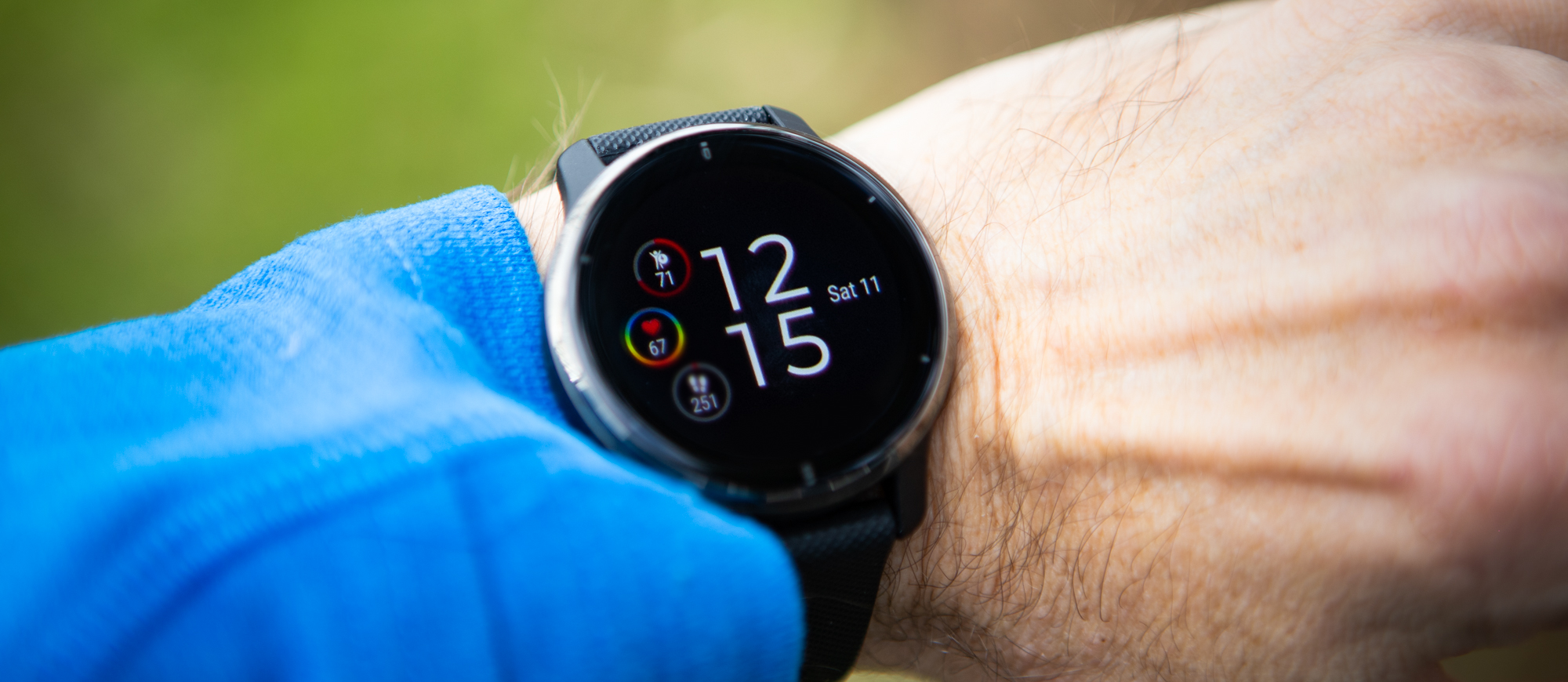Cyclingnews Verdict
The Garmin Venu 2 Plus won't replace a serious cycling computer. It will record a ride but that’s more of a value-added feature just like the new EKG capabilities. Instead, it does everything you want a smartwatch to, it doesn’t need daily charging, it’s got a gorgeous screen, and Garmin Connect will give you incredible details about your whole life both on and off the bike.
Pros
- +
EKG functionality
- +
Garmin Connect data
- +
Lightweight
- +
Incredible screen
- +
Broadcast heart rate feature
- +
Garmin Pay
- +
Phone functionality
- +
5 ATM Water resistance
Cons
- -
Lacks YouTube music support
- -
Lacks support for courses
- -
No power meter support
- -
Lacks temperature sensor
You can trust Cyclingnews
This is going to date me a little but I remember running with a massive rectangular box strapped to my wrist. Since then, things have changed a lot in the smartwatch department. Modern smartwatches look like, well, watches. There's still a split in what you can get though.
On one side you'll find smartwatches that are more like an extension of your phone. On the other side, you'll find options that are capable of tracking every detail as it relates to your running, cycling, and swimming. Whatever you are looking for, we have them in our best smartwatch for cycling buyers guide. Personally though, I prefer one of the best bike computers for serious riding and I love having a more casual smartwatch.
Price: £399.99 / $449.99 / €449.99
Physical Size: 43.6 x 43.6 x 12.6 mm
Display Size: 1.3" (33.0 mm) diameter
Display Type: AMOLED optional always-on mode
Waterproof Rating: 5 ATM
Battery Life: Smartwatch mode: Up to 9 days, Battery saver smartwatch mode: Up to 10 days, GPS mode with music: Up to 8 hours, GPS mode without music: Up to 24 hours
For those of you who also like a more casual take on a smartwatch, Garmin might not necessarily be on your radar. For many people, brands like Samsung and Apple are better known when it comes to this type of smartwatch. I'm here to tell you though, Garmin is a serious contender. The Garmin Venu 2 Plus recently added EKG functionality to its list of features and that created the perfect opportunity for me to spend some time with it. If you are considering a new smartwatch, keep reading to see if something from Garmin is going to make sense for you.
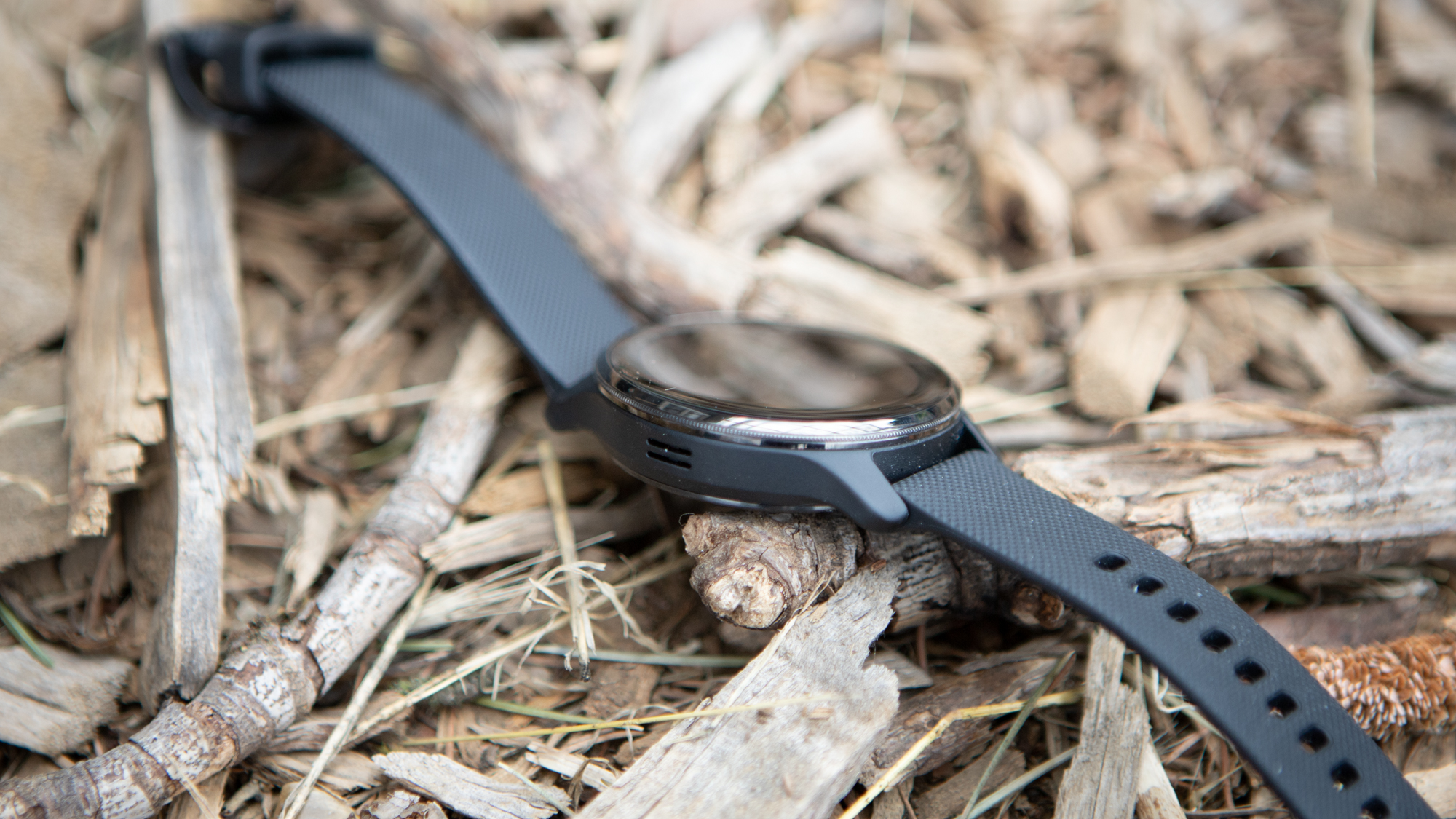
Design and aesthetics
As I mentioned above, there are two types of smartwatches. Unless you are talking about Garmin, then there are six distinct product lines and if you've casually looked and felt overwhelmed, you aren't alone. They do still break down along the same lines though and today, we are talking about a product that falls into the casual side of the equation. The Venu 2 Plus is the top-shelf offering in the Venu lineup that Garmin describes by saying "style and design meet health and fitness."
What that really means is that the Venu 2 Plus will track athletic endeavours but that's not the primary design driver. It has GPS but it's there for tracking distance and doesn't work to follow a course. You also can't connect a power meter although it will broadcast the heart rate measurement if you'd like to use it instead of a dedicated heart rate monitor. Given that we are cyclists, it makes sense to frame things in terms of cycling. The fitness tracking features are ideal for a casual ride but they lack the finite detail you can get from a dedicated cycling computer. Even if you sometimes like to unplug and not stare at metrics while you ride, there are better options from Garmin.
With that understanding, you'll notice that the form follows the function. The Venu 2 Plus isn't exactly what you would consider dainty but it's not huge either. The product page is slightly misleading but if you want the Venu 2 Plus that means a 43.6 x 43.6 x 12.6 mm watch that should fit a wrist size of 125-190 mm (circumference). It might look like you can choose a different size but those options lead to different watches.
Also fixed in place for the Venu 2 Plus are some of the features that seem to present options. The watch's face is round and it includes a sizeable, though hidden, bezel surrounding a 416x416 pixel 33mm AMOLED full-colour screen. The screen itself is also round and Corning Gorilla Glass 3 protects it from scratching.
The last feature that the Garmin Venu 2 Plus presents as an option is voice functionality. There is no cellular functionality though so you'll only be able to use this with a phone close by. What it actually boils down to is that the Venu 2 Plus includes a real speaker and a microphone. That's backed with software that allows initiating a call but the bigger picture is that the hardware means you can initiate a voice assistant through the watch.
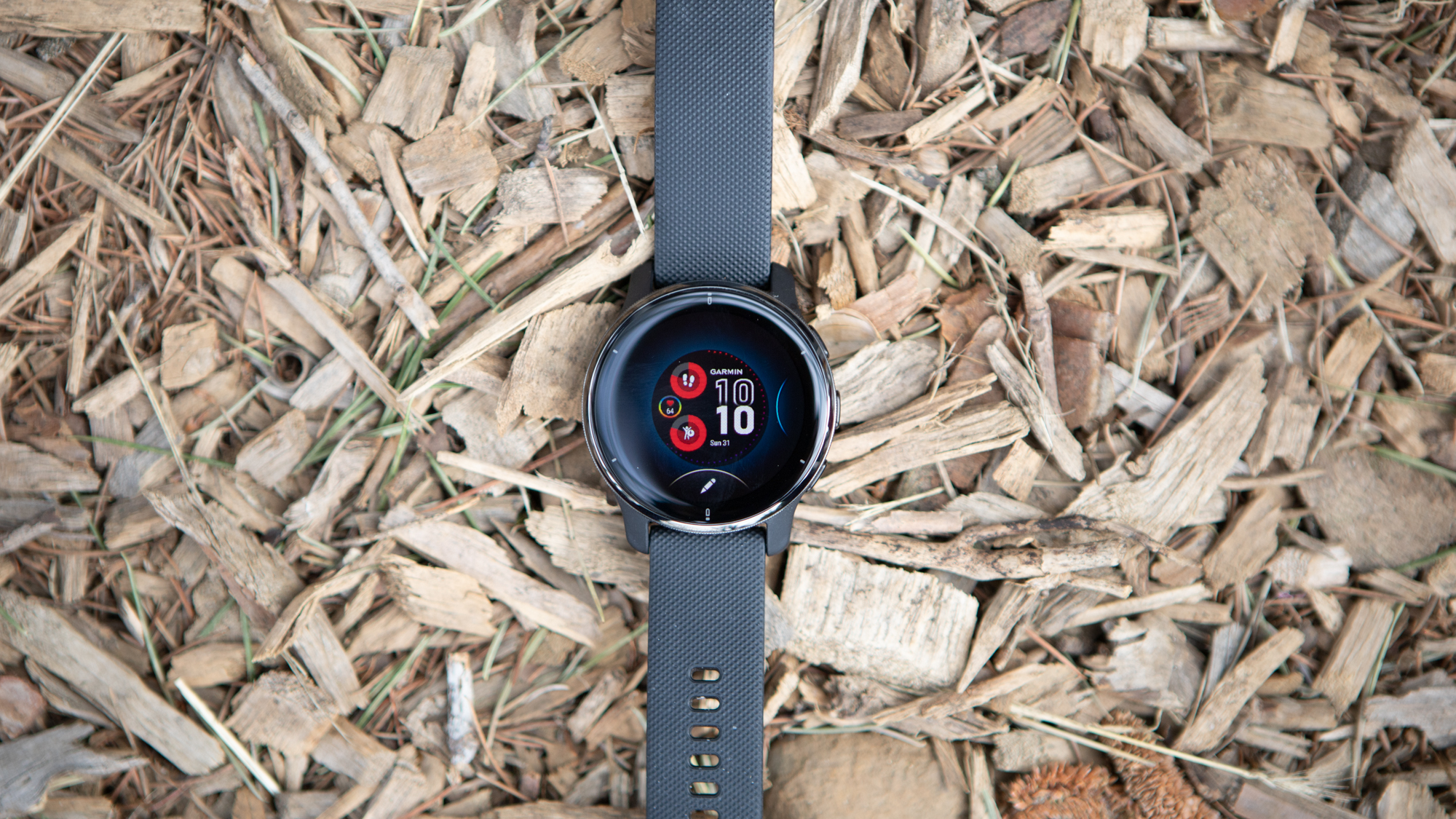
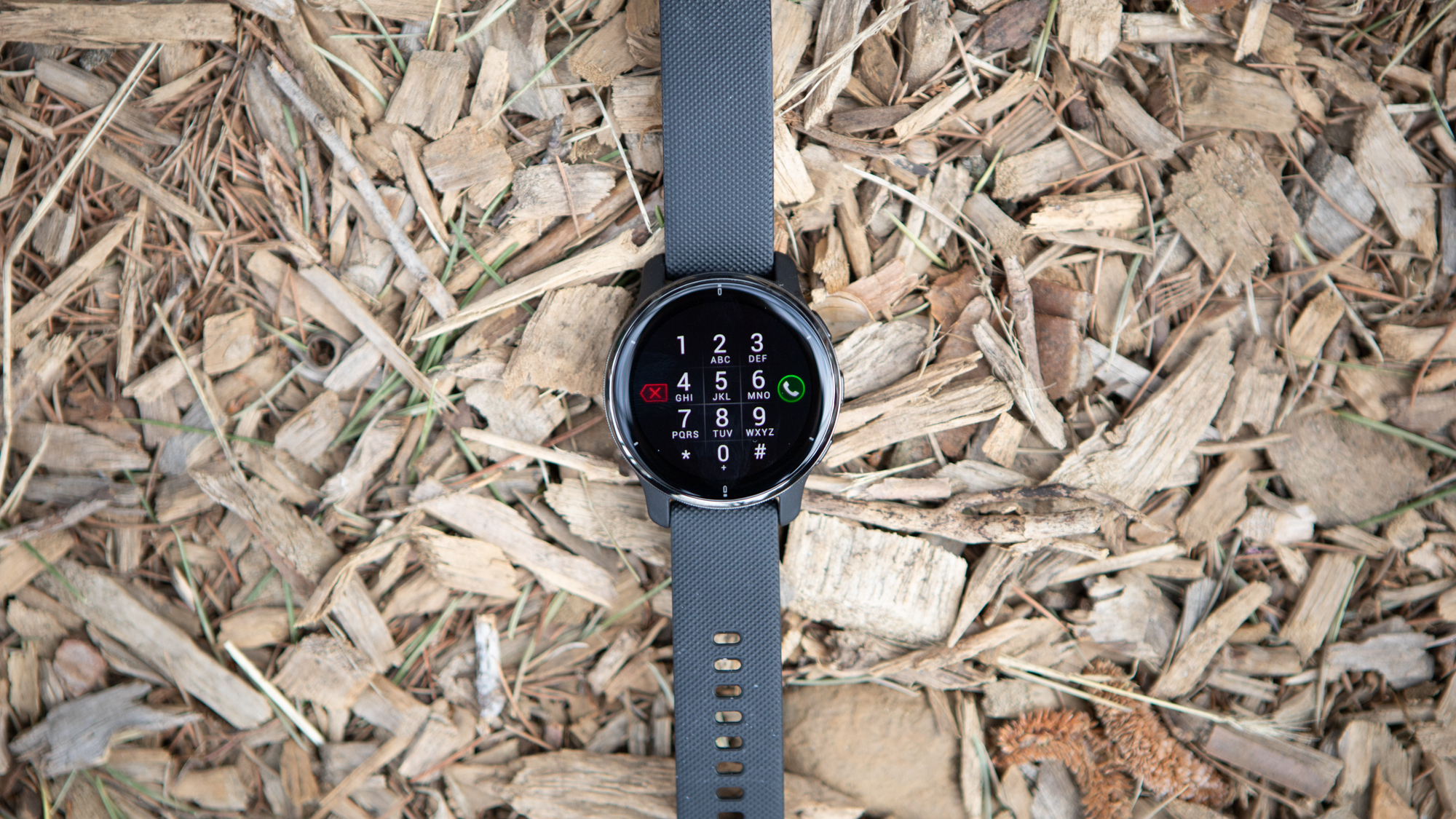
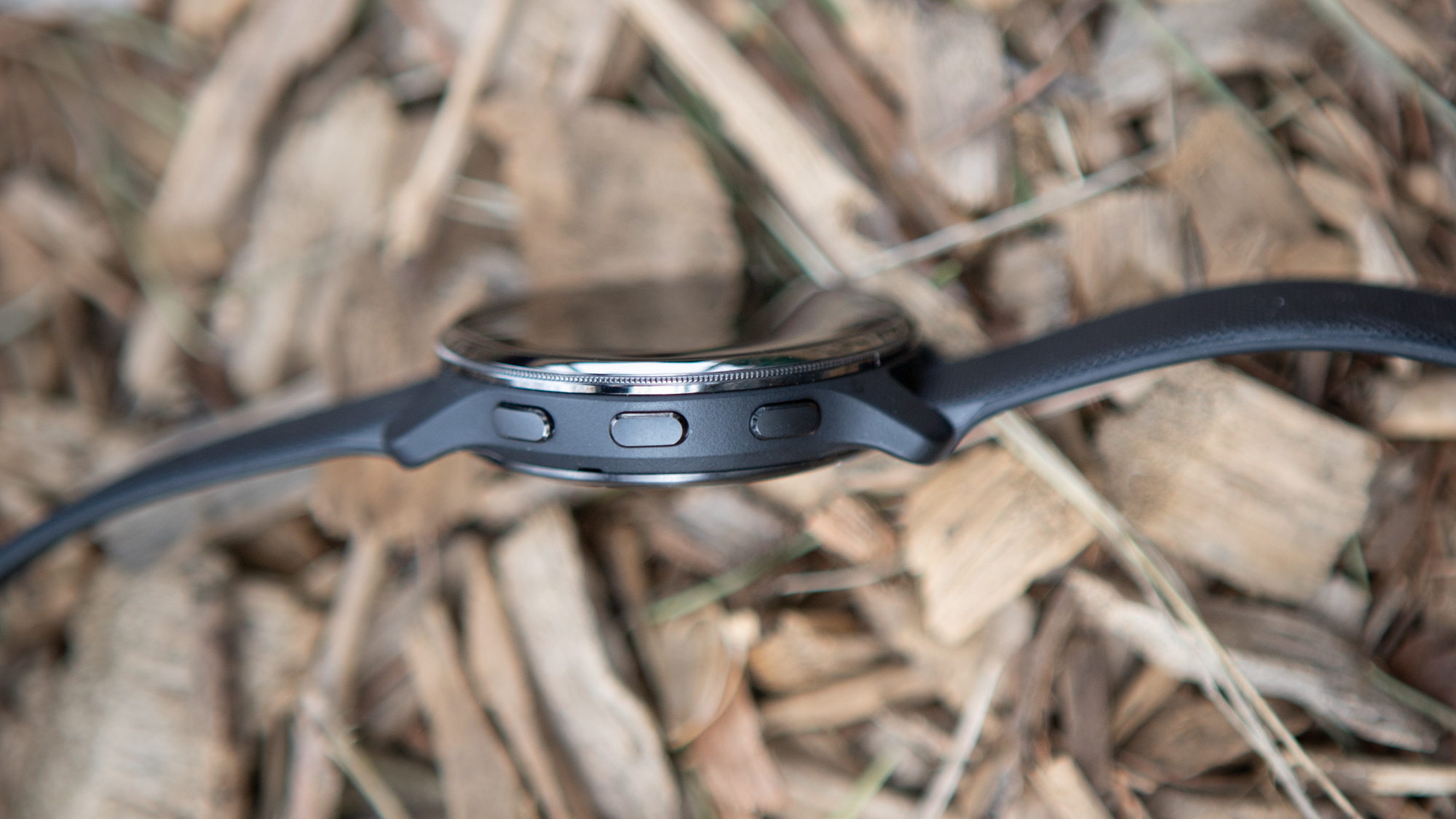
As far as real options, that boils down to colour choices. There are three choices that keep the price the same. Choose cream (white), powder (grey), or black and it comes paired with a matching silicone band as well as a corresponding gold or stainless-steel accent colour for the stainless-steel bezel that rings the display. If you'd prefer a different band, it's a 20mm standard so you can pick up a variety of options and Garmin has options as well.
One detail that's important in those aesthetic options is the stain-steel bezel. The Venu 2 Plus hit the market way back at the beginning of 2022 with the same design. At the time the bezel was just one more aesthetic touch, that added a premium feel but that was it. Except, it wasn't actually the end of it.
In the background, the bezel was part of a bigger picture. We already knew that the Venu 2 Plus had a stainless-steel back and an optical heart rate monitor. That's a standard feature of almost every modern smartwatch and Garmin is particularly adept at leveraging the data. For the first time though the list of features that builds off the optical heart rate monitor now includes EKG functionality and the key to it is the metal bezel. It's been there since launch and after securing FDA approval, users in the US can now touch that bezel and initiate an EKG recording.
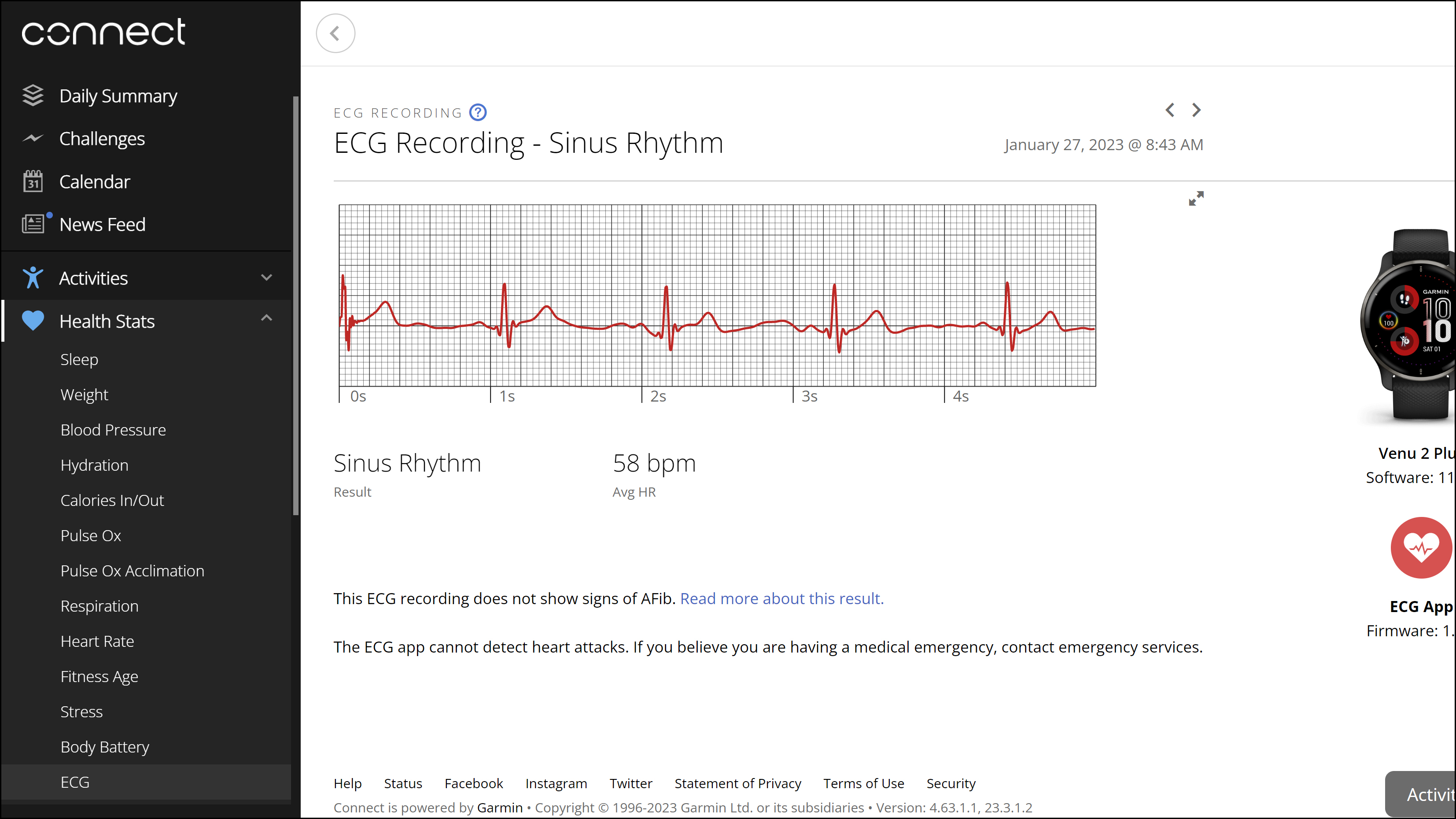
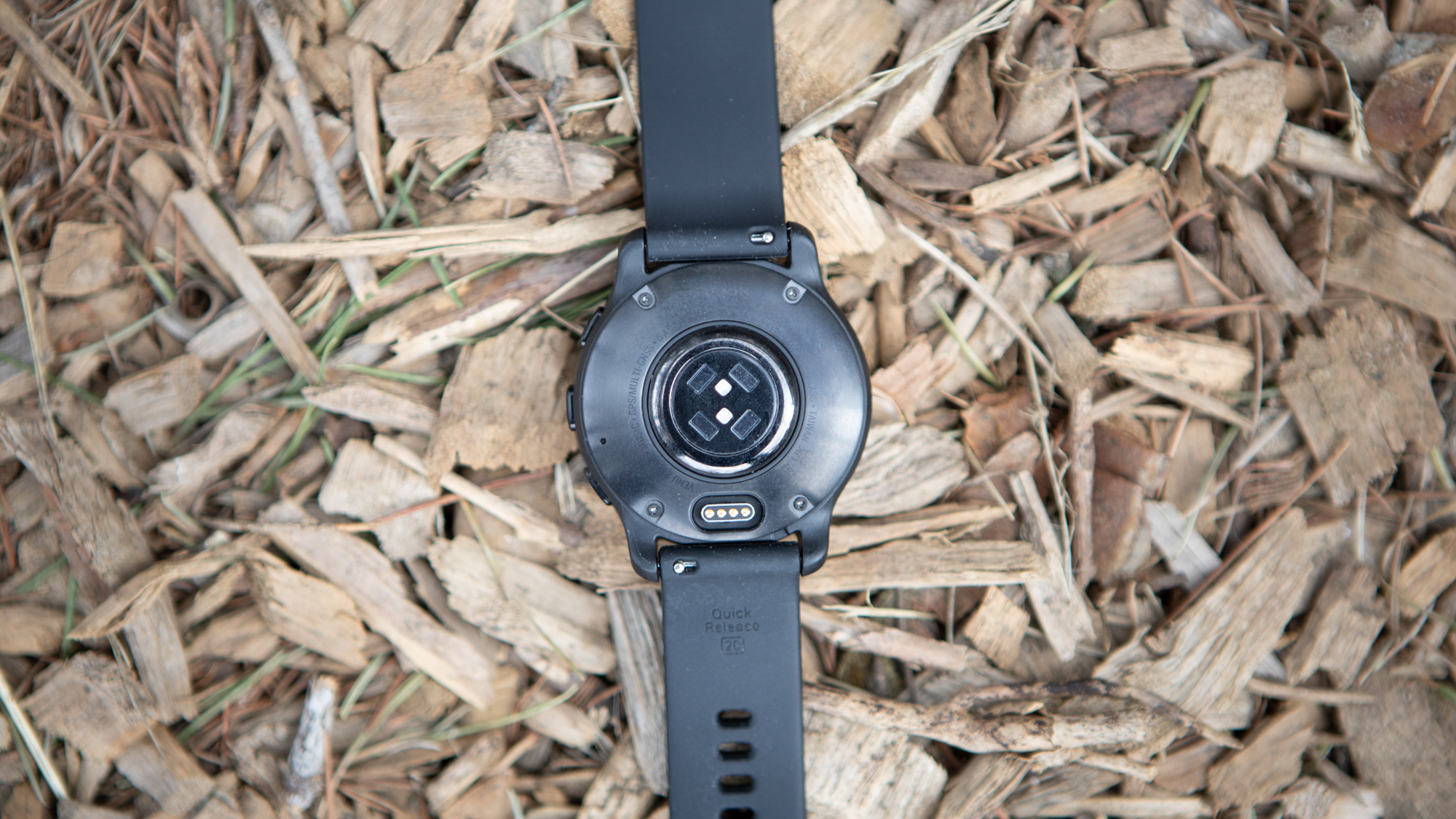
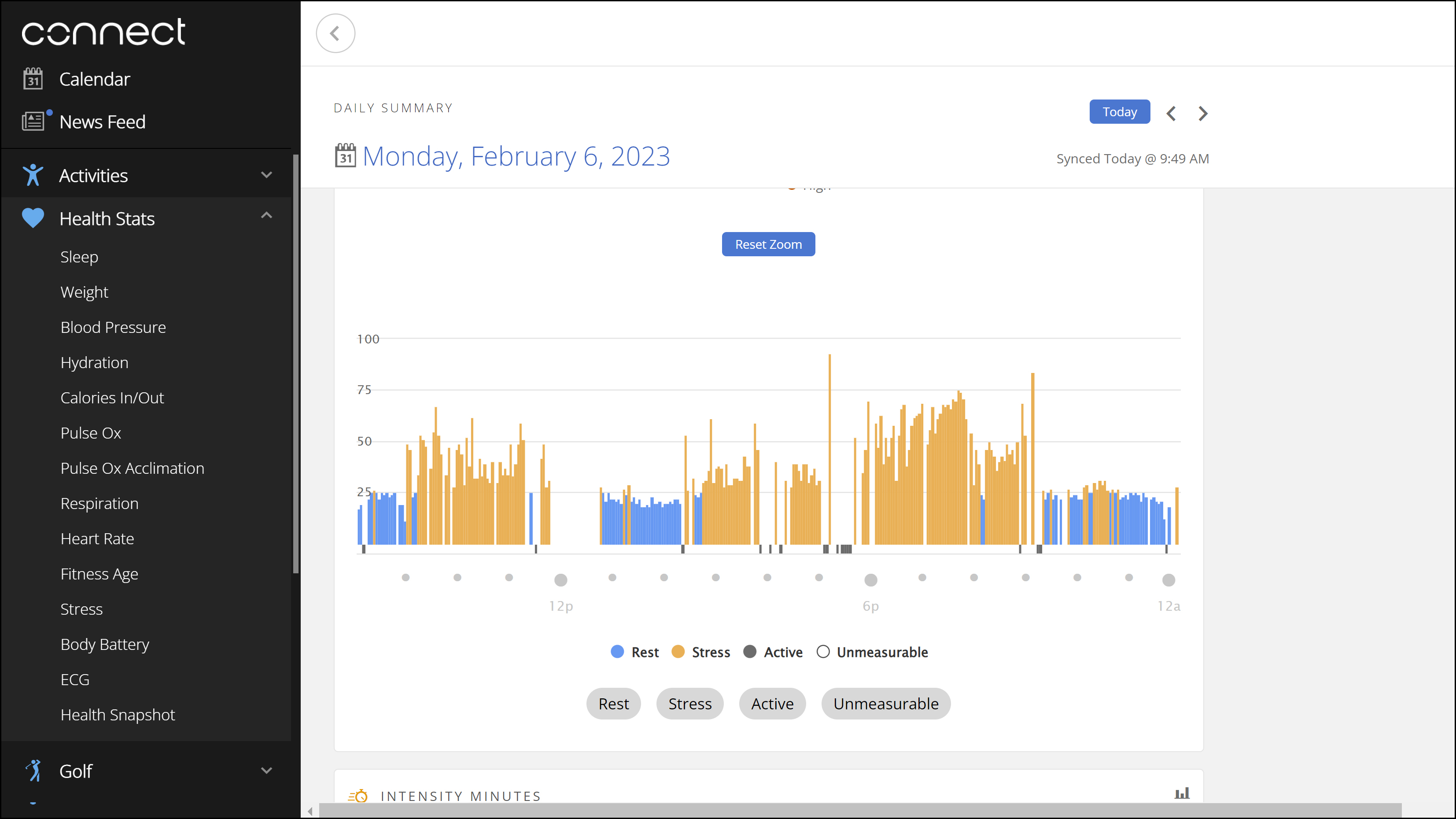
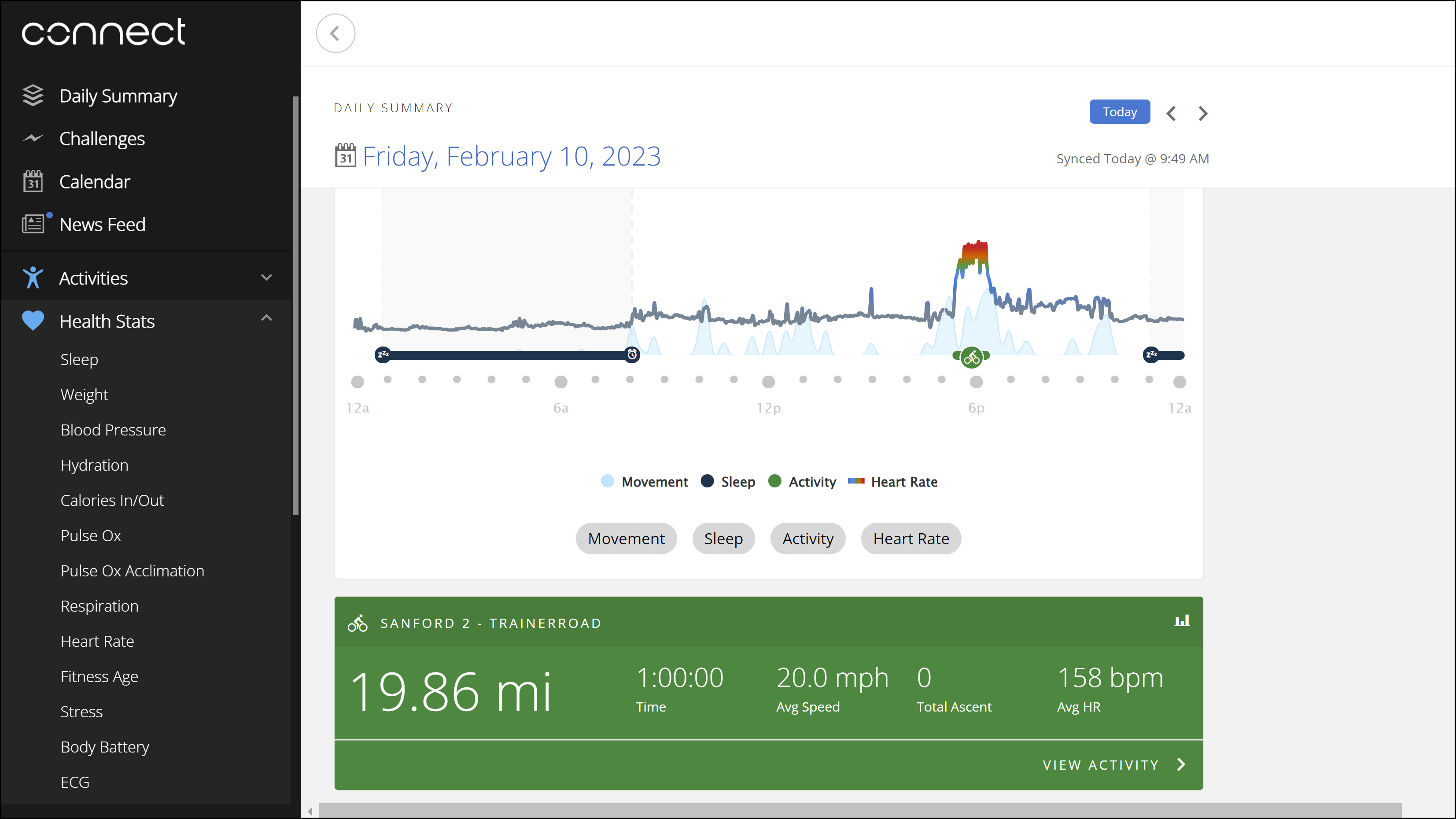
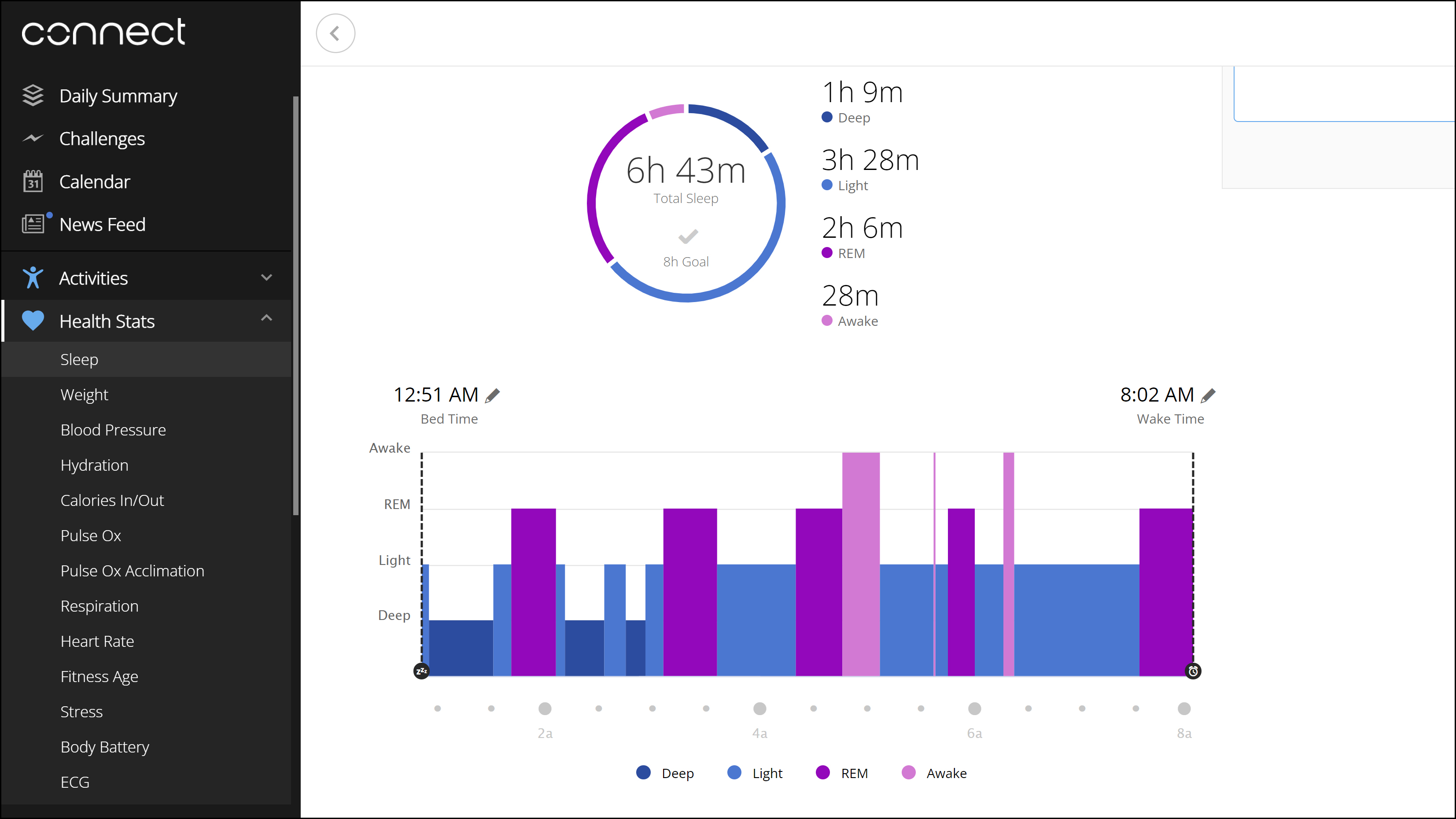
Performance
I've been using a Garmin Forerunner 945 for years now. That watch was completely wasted on me the entire time but I still loved it. I'd spent a lot of time with traditional smartwatches running Google's Wear OS but the Garmin take on a smartwatch was kind of mindblowing. It always felt like if you imagined a smartwatch, that's what you'd get, and the battery life was just so good that it completely changed the experience.
Still, the Forerunner was completely wasted on me and it also lacked some details that I did miss. Both the Venu 2 Plus and the Forerunner 945 have Garmin Pay and they both have the option to play music but otherwise, they are pretty dramatically different. So much so that it's taken some time to retrain myself with the Venu 2 Plus, but with that transition behind me, I can confidently say that the Venu 2 Plus fits my use case a lot better.
What I love about Garmin watches first and foremost is the battery life. Apple, Samsung, Ticwatch, Fossil, and any that I'm not thinking of are all fine watches but having to charge every day is a real drag on smartwatch use. The Venu 2 Plus claims a battery life of up to nine days in smartwatch mode. It obviously drops significantly in GPS mode but there's still little chance of needing a daily charge.
In fact, I've never tested the battery. The whole time I've been testing the Venu 2 Plus I've never even come close to a low battery. I ride five days a week and I take it off to charge during those times. I also tend to take it off to shower despite the 5ATM water resistance rating. The times it's on the proprietary charger aren't always that long but it's still more than enough to never think about it. It's even enough that short trips away from home don't require a charger either.
The other killer feature that comes with most Garmin watches is Garmin Connect. The Venu 2 Plus has GPS, barometer, compass, gyroscope, accelerometer, heart rate, and Pulse OX sensors but they all blur into the background. Open up the companion app, or load up the website, and there is a dizzying array of statistics about your life and the watch is just one part of that data. The watch tracks my sleep and steps and uses the heart rate monitor to report on daily stress. If I go for a hike with my family, or a ride with my son, I can track that and there is also data from my Garmin 1040 Solar bike computer and any rides I do on Zwift all mixed together.
The power of a single Garmin watch isn't the specific features of the watch but the power to track your whole life. If I'm feeling rundown I can see if it's because I had a series of hard workouts or if it's because I didn't sleep well. I even spent some time drilling down into the stress metrics. Garmin was able to validate that yes, I should probably make more use of the breathwork activity that "helps increase awareness, reduce stress, improve mental sharpness, boost work performance or prepare for sleep."
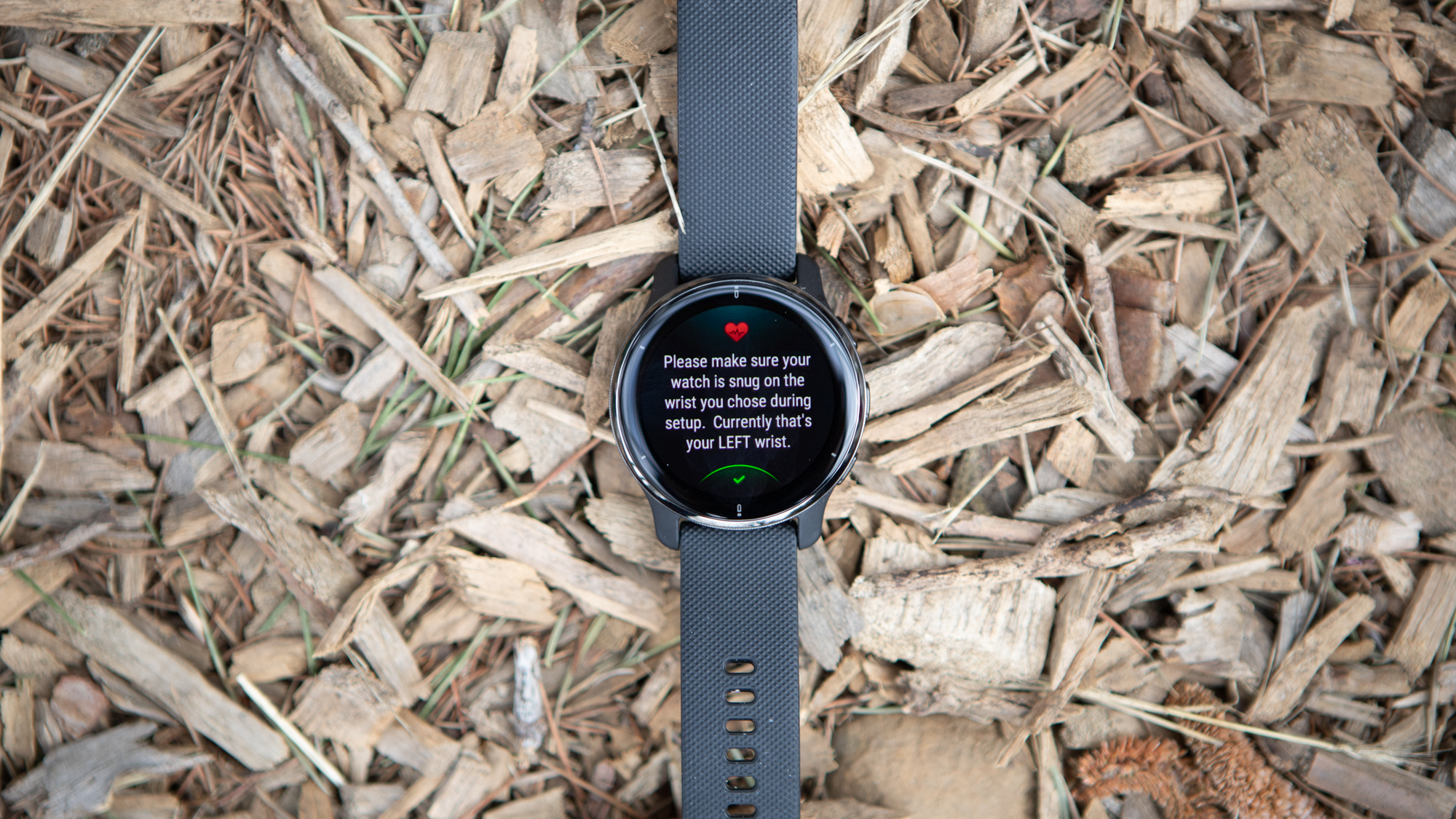
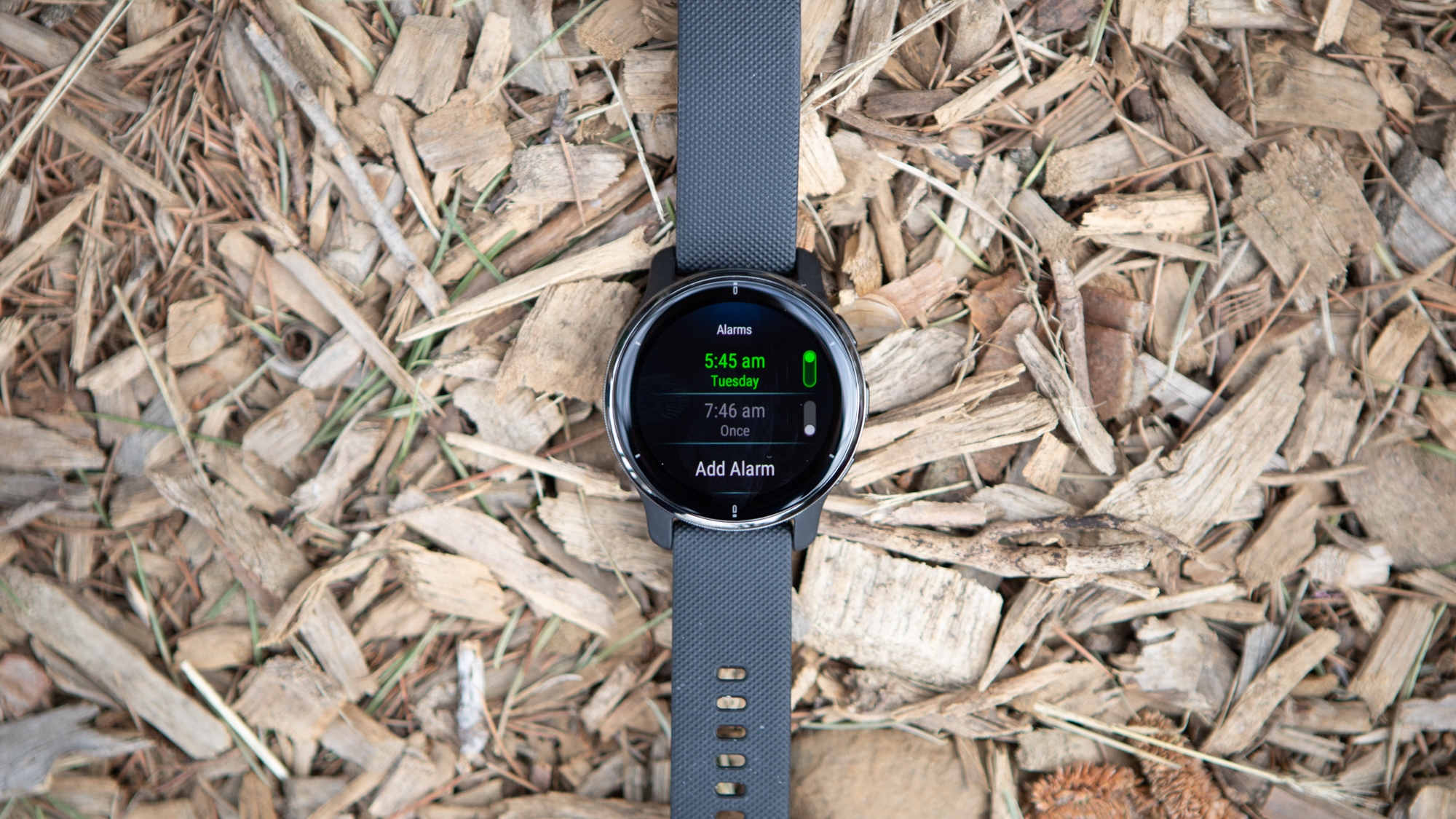
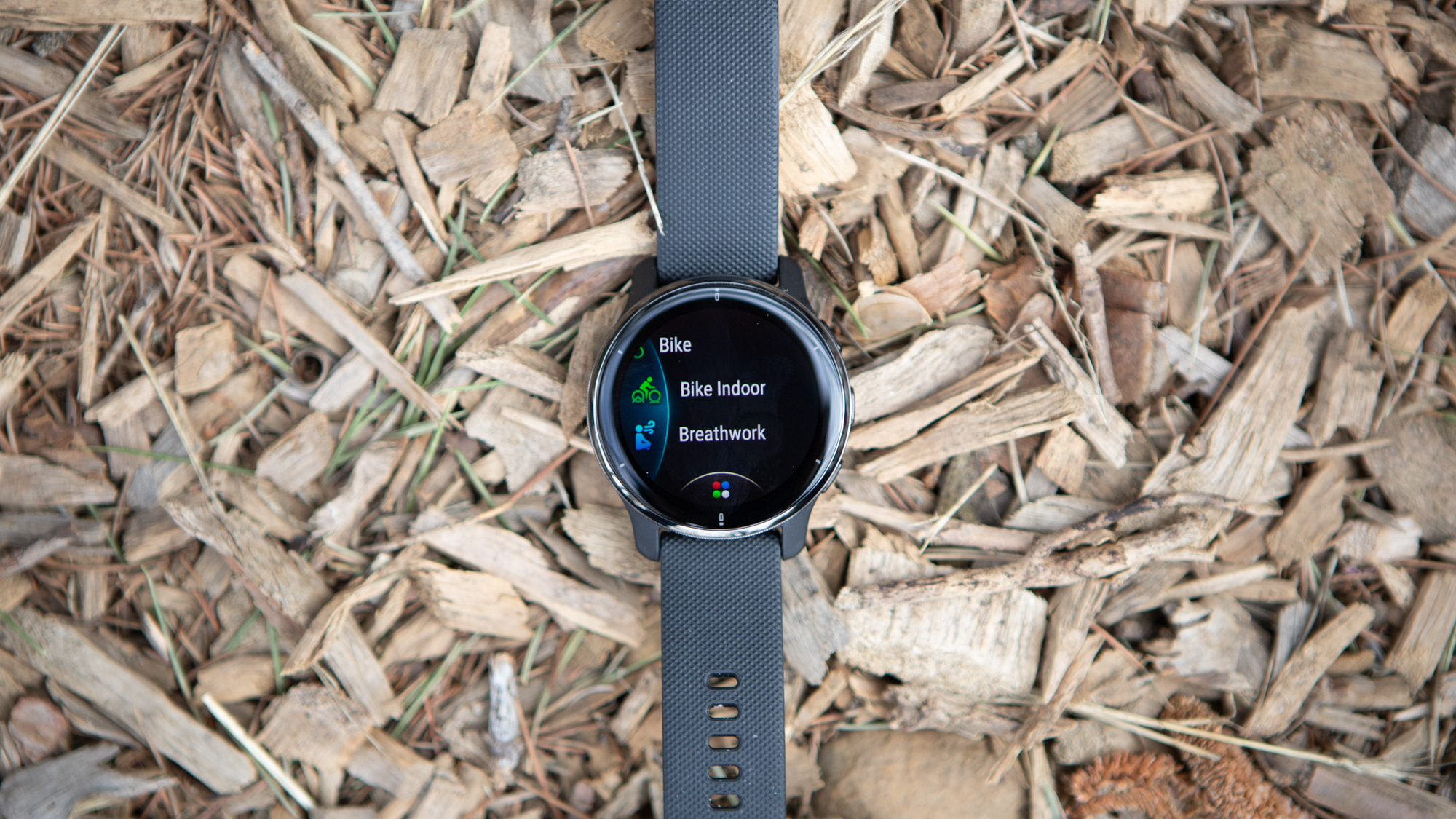
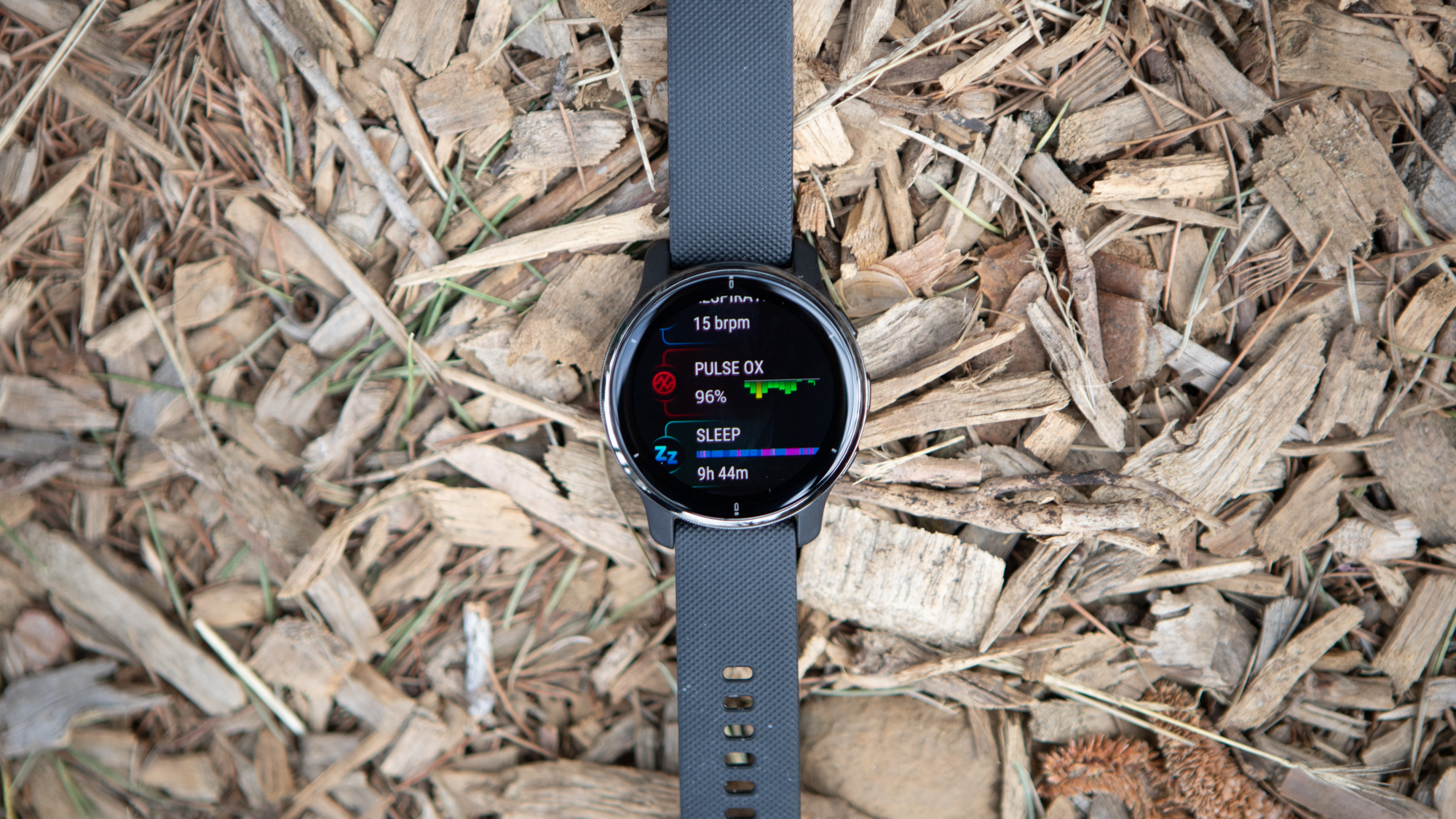
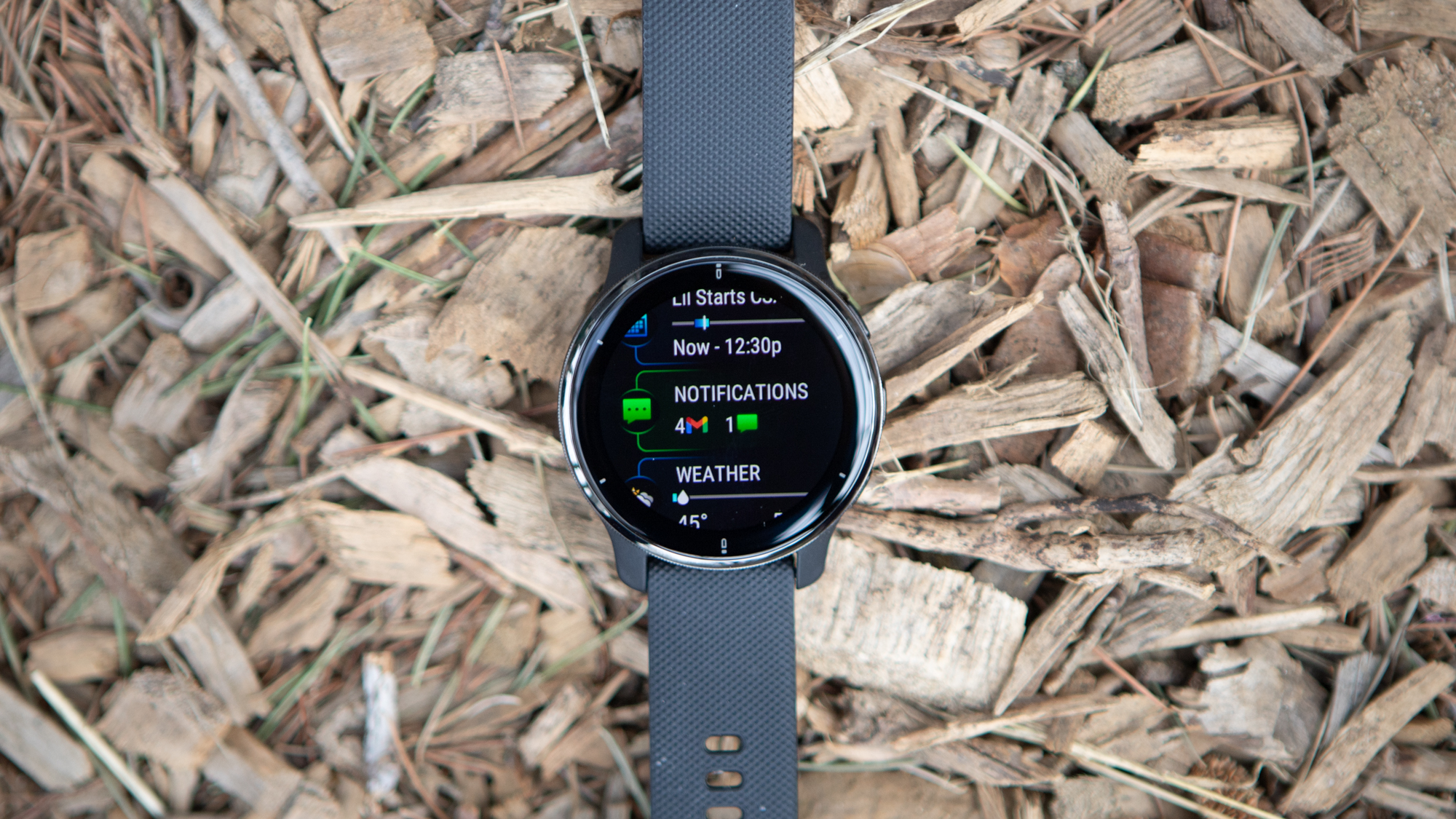
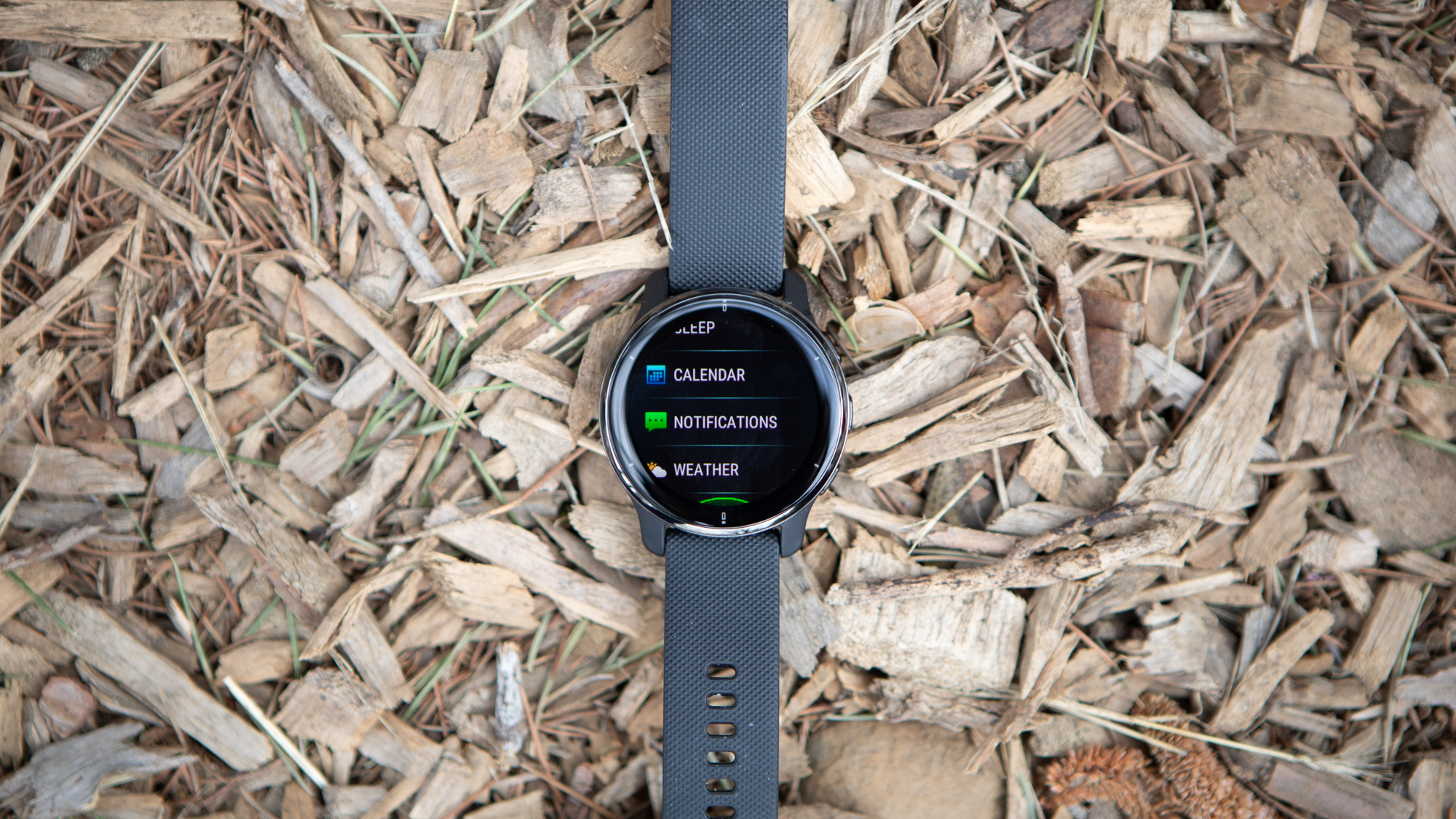
Despite the decent battery life and Garmin Connect being somewhat universal to the Garmin experience, there are also some specifics about the Venu 2 Plus worth mentioning. For one thing, what spurred this review to happen is the arrival of the EKG functionality. I tested it every day for a while but, as far as I know, I've never experienced an irregular heartbeat. Garmin confirmed that as well by not alerting me to an issue during any of the 30-second EKG recordings I tried. I did reach out to others though.
I spoke to a couple of doctors and a couple of folks who did have heart issues. I also interviewed my wife who regularly, though frustratingly not while I was testing this watch, has an irregular heartbeat. Doctors are people too so they didn't exactly agree but there were some themes that came through. For healthy cyclists, there was likely not a health concern that having afib detection on your watch was going to help with. The people I spoke to talked about the limitations of watch-based EKG. Users had a different story though.
Some, including my wife, talked about the possibility of validation and initial detection that could come from the feature. Those that knew they experienced afib generally knew what was happening and didn't actually need an EKG to say so. Early in the journey of detection, it would have been helpful though and a few people talked about purchasing a small handheld EKG machine called Kardia. If you had EKG on your watch, you would have no need for a secondary purchase.
Talking about that early journey of detection, there was also a theme of validation I heard about. If you live outside the US, you might be more inclined to have a doctor check things early on. Unfortunately, in the US that could be an expensive proposition when you aren't sure what is happening, and it's also not unusual for women to feel dismissed when initially understanding a new health issue. Having the feature built into another device allows a user to seek out further help already armed with some data and that can be helpful. Despite the headline though, it's very much a value-add feature. But that's okay because the rest of the experience is also very good. The screen is bright and crisp, the colours are vibrant and the touchscreen works exactly how you'd expect.
What I tend to use the Venu 2 Plus for, outside of tracking my life, is leaving my phone in my pocket. Sometimes that means notifications, sometimes an alarm, sometimes a phone, and sometimes a wallet. Notifications are the most frequently used and, in that case, all I have to do is glance at my wrist to know if I need greater attention. Unlike the Forerunner series, if I can't immediately look at a notification I can swipe up and get back to it at a later date. Of course, when I'm sleeping the watch doesn't pass notifications through but it's still there as an alarm. I can get notifications without bothering anyone but I can also wake up for a ride long before the rest of the family wakes up without an alarm going off. I've also occasionally used it to pay for things with Garmin Pay and answered a call when my phone wasn't convenient. All of these are the little things that just make life easier.
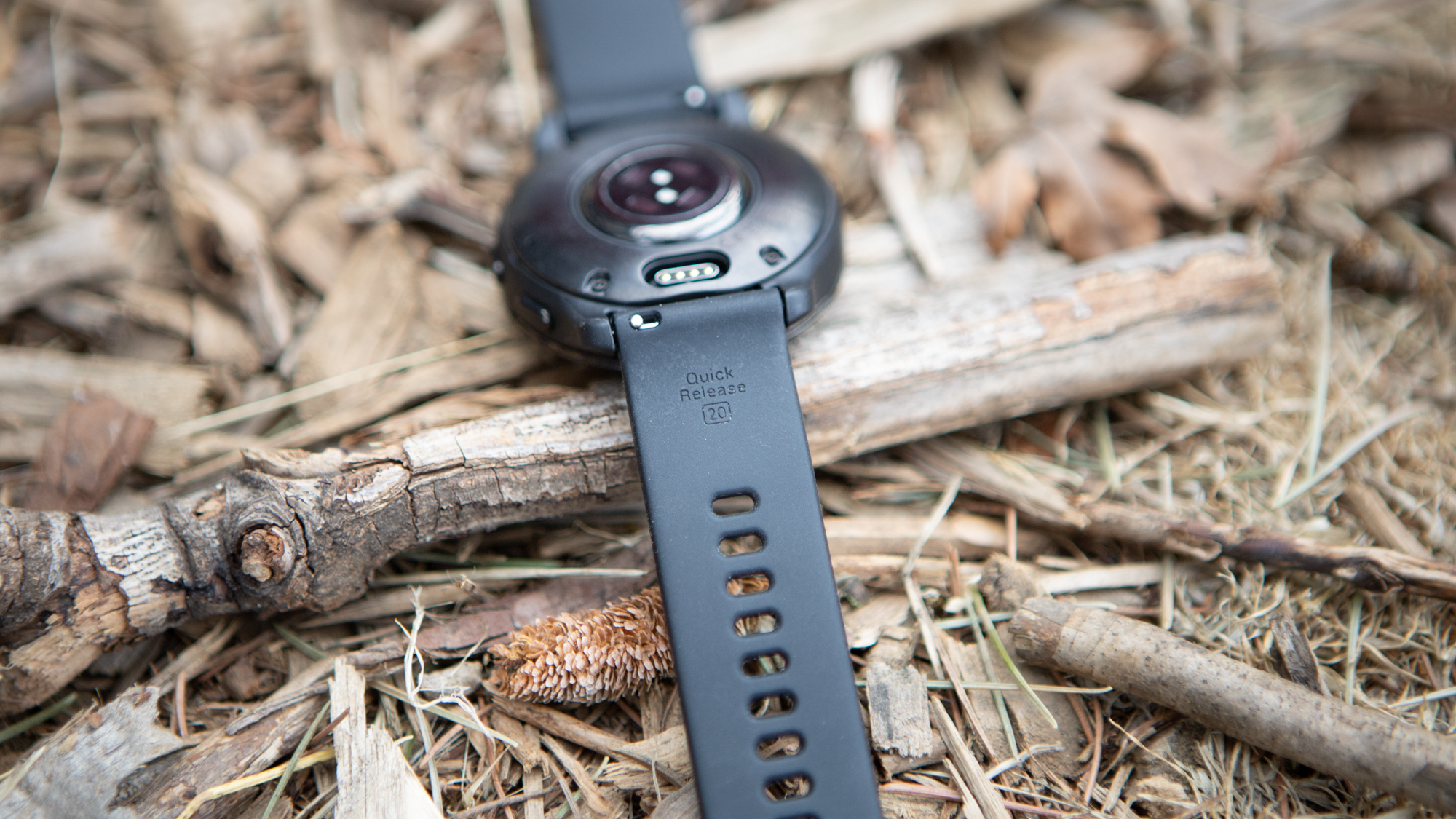
Verdict
The Garmin Venu 2 Plus is a casual smartwatch that has some fitness tracking features. The primary competitors don't come from fitness companies like Polar or Suunto but rather electronics companies like Apple and Google. In fact, I'd go so far as to say that the only credible competitor is Apple.
Google's Wear OS had promise five years ago but never developed into a credible product. Actually, that's not entirely true. Mobvoi and the Ticwatch have always been so inexpensive that if you want the basic experience of notifications and step tracking, they are worth a look. Sleep tracking has always been pretty bad though and it's unlikely you will actually wear it 24 hours a day because of the battery. Fitbit pricing has dropped enough that there might be something worth a look at on that front as well.
For the vast majority of the world though, the Apple Watch is synonymous with the smartwatch and Garmin is your choice for fitness tracking. Apple has recently made a push into serious fitness tracking and, if you are willing to make the financial commitment, the Apple Watch Ultra finally has a capable battery. Realistically, it's hard to turn away from the Apple ecosystem for iPhone users, because everything just works seamlessly, and even though the battery is less capable, the fast charge might allow it to work.
There are a lot of people who don't use an iPhone though. For all of us who have an Android phone and want a really great smartwatch experience, the Venu 2 Plus is worth a look. The addition of EKG probably isn't a game-changer but it does add value to an already great package.
There are some drawbacks though. The lack of support for a power meter and course directions mean it's tough to get your watch as an occasional bike computer. I also find the lack of YouTube music support mildly annoying given that's my music service of choice. Garmin is hardly alone in that though so I expect to use my phone instead. The one thing I really do miss on the Venu 2 Plus is a temperature sensor for keeping track of body temperature. It means there's no automatic cycle tracking for women and it means no possibility of COVID detection for me.
Despite the nitpicks, I still recommend Garmin watches to everyone who asks me. The battery life and power of Garmin Connect are so powerful that if you are considering a non-Apple smartwatch it's just a matter of picking which features you want. If EKG is something you care about then the Venu 2 Plus is currently the only Garmin product that has it.
| Design and aesthetics | The primary thing you’ll see if the screen and it’s gorgeous but the watch body is still plasticky and the price point is high. | 7/10 |
| Wet weather performance | As much as I love the simplicity that Garmin offers, comparatively it’s less full featured than something running an Apple or Google OS. | 8/10 |
| Cold weather performance | Garmin certainly knows how to track fitness but that’s not where the Venu 2 Plus focuses. It will work well for casual endeavors but it’s not a serious fitness watch. | 7/10 |
| Comfort and fit | It works exactly how you expect it should. Despite being completely different than anything I’d used in the past I was using it without issue within a few minutes. | 10/10 |
| Value | The biggest competitor is the Apple Watch Series 8 and you can get an aluminium watch body with a similar band for a little less money. I feel like that’s the price to match but Garmin has advantages as well and the price is very close. | 8/10 |
| Overall | Row 5 - Cell 1 | 80% |
Tech Specs: Garmin Venu 2 Plus
- Price: £399.99 / $449.99 / €449.99 / AUD $769
- Lens Material: Corning® Gorilla® Glass 3
- Case Material: Fibre-reinforced polymer with stainless-steel rear cover
- Physical Size: 43.6 x 43.6 x 12.6 mm, Fits wrists with a circumference of 125-190 mm
- Display Size: 1.3" (33.0 mm) diameter
- Display Resolution: 416 x 416 pixels
- Display Type: AMOLED optional always-on mode
- Weight: 51.0 g
- Water rating: 5 ATM
- Battery Life: Smartwatch mode: Up to 9 days, Battery saver smartwatch mode: Up to 10 days, GPS mode with music: Up to 8 hours, GPS mode without music: Up to 24 hours
- Health Monitoring: Wrist-based heart rate (constant, every second), Daily resting heart rate, Abnormal heart rate alerts, Garmin ecg app, Respiration rate (24x7), Pulse ox blood oxygen saturation, Fitness age, Body battery™ energy monitor, All-day stress, Relaxation reminders, Relaxation breathing timer, Sleep, Sleep score and insights, Hydration, Women's health, Health snapshot
- Sensors: Gps, Glonass, Galileo, Garmin elevate™ wrist heart rate monitor, Barometric altimeter, Compass, Gyroscope, Accelerometer, Ambient light sensor, Pulse ox blood oxygen saturation monitor
- Daily smart features: bluetooth®, ant+®, wi-fi®, Connect iq™ (downloadable watch faces, data fields, widgets and apps), Smart notifications, Text response/reject phone call with text (android™ only), Calendar, Weather, Battery saver (customizable low power watch), Controls smartphone music, Plays and controls watch music, Music storage, Find my phone, Find my watch, Garmin pay™, Bluetooth phone calling and voice assistant support
Check out our Garmin coupon codes to discover great offers on Garmin smartwatches and stay on top of your performance.
Josh hails from the Pacific Northwest of the United States but would prefer riding through the desert than the rain. He will happily talk for hours about the minutiae of cycling tech but also has an understanding that most people just want things to work. He is a road cyclist at heart and doesn't care much if those roads are paved, dirt, or digital. Although he rarely races, if you ask him to ride from sunrise to sunset the answer will be yes. Height: 5'9" Weight: 140 lb. Rides: Salsa Warbird, Cannondale CAAD9, Enve Melee, Look 795 Blade RS, Priority Continuum Onyx
